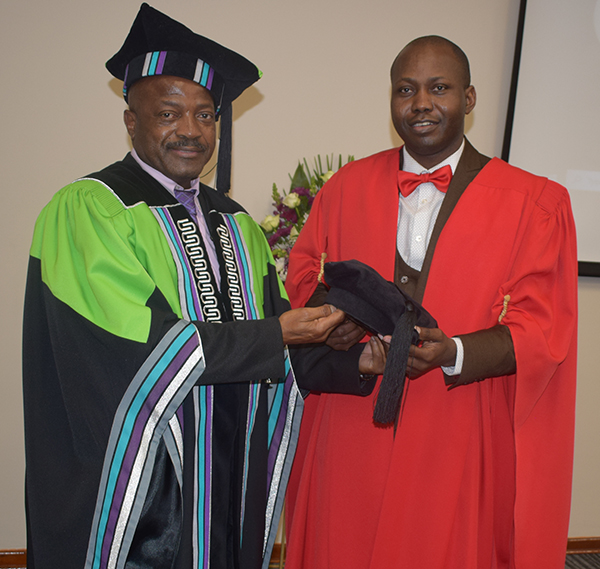In his inaugural lecture on 14 September, North-West University (NWU) academic Prof Adeyemi Oladapo Aremu shed light on the significance of indigenous knowledge and its role in medicine.
He delivered his lecture titled "Indigenous knowledge: Connecting plants, people, and everything in between" on the Mahikeng Campus.
Prof Aremu emphasised the increasing awareness and concern regarding the accelerating transformation of our planet and societies. He underlined the urgent need to value, document, and protect indigenous, traditional, and local knowledge, especially pertaining to plants and nature.
“This aligns seamlessly with South Africa's Indigenous Knowledge (IK) Act 6 of 2019, which aims to safeguard, promote, develop, and manage indigenous knowledge,” said Prof Aremu.
The lecture delved into the extensive research conducted over the last decade, primarily among the Batswana community of South Africa.
“This research actively contributes to documenting plant resources, ensuring their sustainable utilisation, and conserving them to meet human needs. These plants serve various purposes, from managing skin diseases to functioning as human contraceptives.”
The lecture also explored the use of plants in ethnoveterinary practices, addressing diseases affecting livestock. The comprehensive value-chain research encompassed bioactivity testing, phytochemical characterisation, safety evaluation, conservation efforts, and assessing the economic potential of African floras.
Overall, the research presented a compelling case for harnessing indigenous knowledge to produce valuable products for both human and animal needs.
A significant portion of the lecture focused on the planet's health, highlighting that indigenous people collectively control 25% of the Earth's landmass.
Prof Aremu said it is important to take note of the wealth of undiscovered plant knowledge and being intentional about preserving it. He emphasised the incredible value of plants, both for sustaining life and contributing to food security and healthcare needs.
In his closing remarks, Prof Aremu urged upcoming researchers to maximise collaboration and embrace innovation as they continue to explore the rich realm of indigenous knowledge.
Prof Sonia Swanepoel, deputy vice-chancellor for community engagement and Mahikeng Campus operations, congratulated Prof Aremu on attaining the position of professor.

Prof David Modise, executive dean of the Faculty of Natural and Agricultural Sciences, and Prof Oladapo Aremu.
